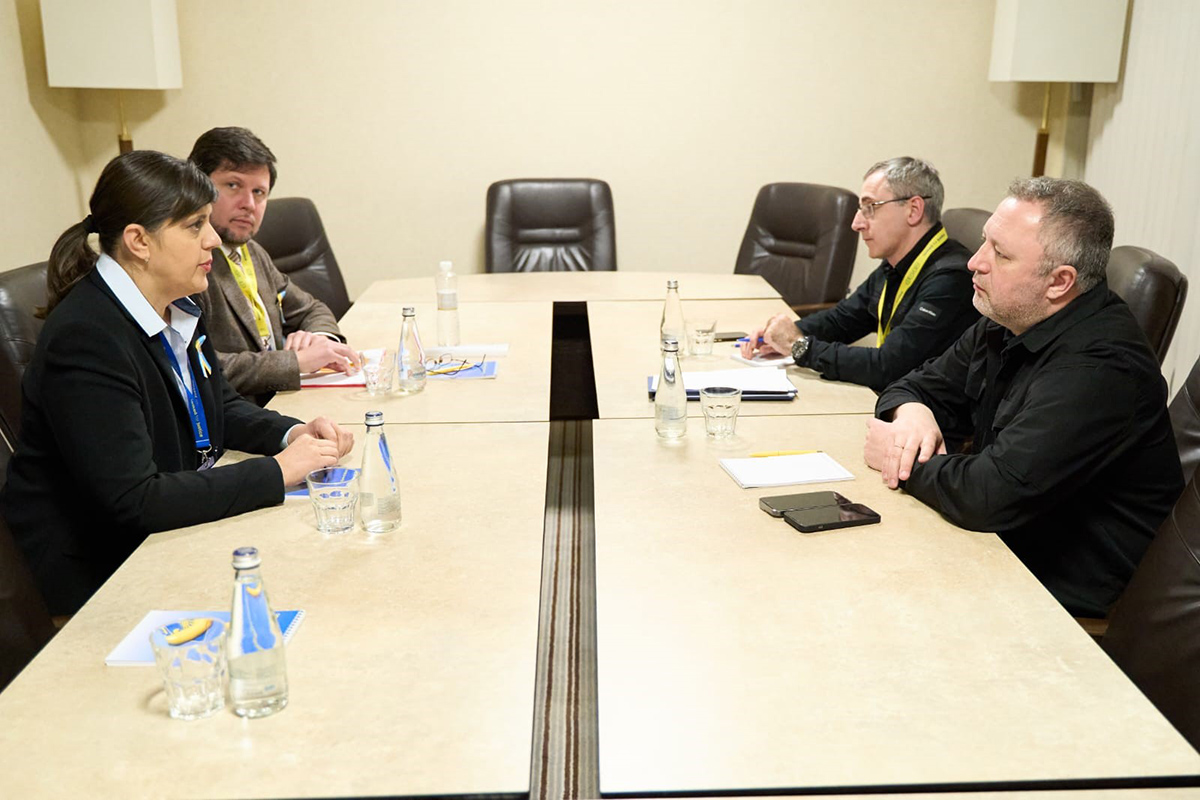Dear colleagues, Ladies and Gentlemen,
It is a privilege to be here today; one that I would not waive for anything. I would like to thank our hosts, the free men and women of Ukraine, for defending all of us with the power of their will.
Meetings like this one help shape a common understanding of the situation. Our Ukrainian friends have the necessary willpower, but the strength of their resistance to the Russian aggression depends widely on our support.
It is one thing to declare it, and another to provide it. It is one thing to express solidarity, and another to express a commonality of fate.
Few know that in June 1940, the government of Winston Churchill proposed the creation of a Franco-British Union, with joint organs of defence, foreign, financial and economic policies.
This last attempt to prevent the imminent collapse of France under Nazi aggression came too late. One of the explanations put forward by Jean Monnet in his Memoirs was that “Both nations, and even their individual citizens, still believed in their heart of hearts that they could escape and survive alone, by their own separate efforts.”
Today, we are once again witnessing an attempt at domination, putting the world in mortal danger. Are we wiser than our predecessors?
Years from now, history will examine every choice we will not have made; every fact we will have chosen to ignore, every responsibility we will have avoided. However, our grandchildren will also be learning about the choices we will have made, based on the facts that we could not ignore. I hope they will draw inspiration from the way we have lived up to our responsibilities.
In the coming days, far more qualified colleagues will expose the horrors of the Russian aggression. You will discuss how to hold the perpetrators of all those crimes accountable. There is one fact that I cannot ignore: the Russian Federation is deporting thousands of Ukrainian children. Yes, deporting!
This fact alone brings us back to the darkest hours of European history. This is why I wanted to be here today.
Not only because Ukrainian lives are being sacrificed for the rest of us to live in peace.
Not only because if Ukraine falls, Russia will not stop.
Not only because the real objective of the aggressors is not territorial gain, but to divide Europe into spheres of influence, which would mean the end of European integration.
I am here to take a stand, with you, against the new avatar of radical evil.
Ladies and Gentlemen,
In this situation, what can the European Public Prosecutor’s Office do?
We can help the Ukrainian authorities with investigations into fraud affecting the financial interests of the EU.
As Prosecutor General Kostin has said on several occasions: in times of war, corruption is treason. The two of us have the same understanding of what is at stake. You maintain trust with consistency in fighting corruption. We have already established a framework for an effective cooperation. We are fully aligned.
However, the EPPO could do much more to help.
We act as a single office with a decentralised structure. No one has access to more information than we do and, compared to traditional cross-border coordination methods, we are much faster.
We are the most powerful investigation and prosecution tool currently available in the EU when it comes to cross-border financial criminality. There is no better way for the EU to bring down the full force of its collective economic strength and criminal justice systems on those who assist in sanctions evasion.
If the EPPO did not exist to defend the financial interests of the EU, we would have to invent it to ensure that EU restrictive measures are as painful as they should be.
The EPPO is ready to fight criminals who conceal the origin, destination or ownership of goods and assets falling under the EU sanction regime. This would help to slow down the Russian war effort and, with confiscations following prosecutions, even contribute to the financing of the reconstruction of Ukraine after the war.
I hope you will understand why today, in Lviv, I cannot remain within the boundaries of judicial self-restraint.
This is why, as the first European Chief Prosecutor, I am confident in the European Union institutions to take position on the Franco-German initiative to enlarge the scope of the EPPO’s competence to the circumvention of EU restrictive measures! I am convinced the EPPO is ready, and we should do it.
Thank you for your attention.
Laura Kövesi
European Chief Prosecutor

